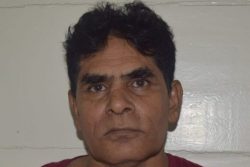It is clear from all the exposés about what goes on in the current White House, that as far as President Donald Trump is concerned, loyalty trumps everything. Those making the disclosures in Washington do so with a somewhat disapproving air, but Guyana’s politicians would hardly be shocked; they have operated on that principle since independence and possibly even before.
During the last election campaign, the coalition promised us a meritocracy, but what we got once they acceded to office was – with some exceptions – mediocracy at best, often delivered in the case of the main partner by former army personnel who had no particular skills, managerial or otherwise, and no grasp of the principles of civilian government. Again, although it was never stated, the presumption must have been that loyalty at the military level (which is necessary in that environment) would translate to the civilian context.
That said, the other side too has on the whole, never pretended to fill government posts with the best talent available without taking the political disposition of a possible incumbent into account. Those who sit in Cabinet are intended to reassure the base that their representatives are in power, and not that they have been recruited from the upper echelons of the competent. This would not be to claim that some of them may not evince talent of one kind or another; it is simply to observe that this is usually not the primary reason why they have been selected. They too must be loyal above all else, otherwise they would not be there.
In any case, where there do happen to be marriages of competence and loyalty, an accomplished individual has to sometimes suppress good judgement in favour of fealty if he or she wants to keep his/her job. Furthermore, this reality discourages others with aptitude from entering the political arena at all.
The inverse side of this, of course, is that ministers who have demonstrated they cannot discharge their portfolio responsibilities effectively, or who commit a major faux pas, often, although admittedly not always, are afforded protection from removal on account of their faithfulness and the fact that the leadership can rely on them. Needless to say, it simply perpetuates indifferent government at best and inferior government at worst.
Furthermore, a closed political group, where loyalty functions as the main dynamic, will tend to cover up instances of corruption within its ranks, that in its turn will encourage further corruption. A leader who insists on political rectitude is, it is true, operating beyond the boundaries of loyalty alone. That said, however, this country is not without its examples of upright leaders some of whose subordinates have been corrupt, but who have either not dealt with the problem or have not seen it.
Those who seek to reform our Constitution in order to address the strangulation of our development caused by our disfigured political system, would still be faced with a serious administrative skills deficit, even if they succeeded in that reform. As is well known, Guyana exports a higher percentage of its qualified personnel than most other countries in the region. According to the IDB (2014), this country exports 89 per cent of its people who have a tertiary education to OECD countries, the highest percentage in Caricom. Practically speaking, therefore, we do not have a critical mass in terms of human resource skills for the purposes of the development everyone is anticipating.
This deficiency is also reflected in our political players, some of whom, as already mentioned, are not really equipped for their posts, although this is not the same thing as saying that advanced education is necessary for a government post. Everyone can think of people who may have no formal qualifications, but who are very knowledgeable in their field and have a natural talent for management; such persons would be an asset to any administration. However, in a general sense, when looking at overall figures it can be concluded that a dearth of formal professional expertise signals a major impediment in moving a country forward.
Modern government is enormously complex, and most voters like to see results in short spaces of time. A failure to deliver on the part of a newly elected party will often be punished by the electorate when the next poll rolls around. It is just that a world in flux – and it is undergoing fundamental changes at present – is not going to produce instant benefits in any one nation in many areas. In such circumstances, electors tend to be attracted to those with simple messages, simple analyses and simple solutions. It is this which has put Mr Trump in the White House, and which caused the UK population to vote in favour of Brexit in 2016.
In Guyana’s case, of course, there are other complex factors at work which have been expounded on by newcomers to our local political universe. After the failure of the coalition government, however, Leader of the Opposition Bharrat Jagdeo has resorted once again to a simple, well-worn ethnic formula, whose adhesive is the traditional loyalty syndrome. This is also reflected in the PPP’s choice of presidential candidate, namely Mr Irfaan Ali. It remains to be seen what will emerge from the new disposition of parties at the next election, and whether demographic change will enable the reformers to make some headway on the constitutional front.
Even if that is achieved, whoever is in government thereafter will have to address the matter of the brain drain as a major priority if they want to make any economic and political progress.








